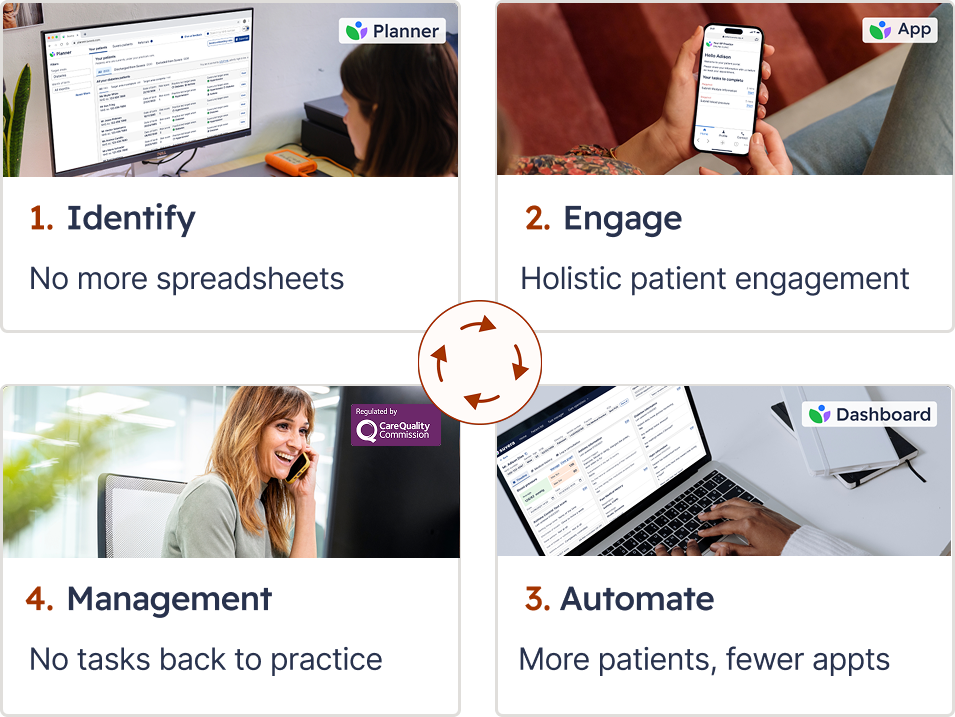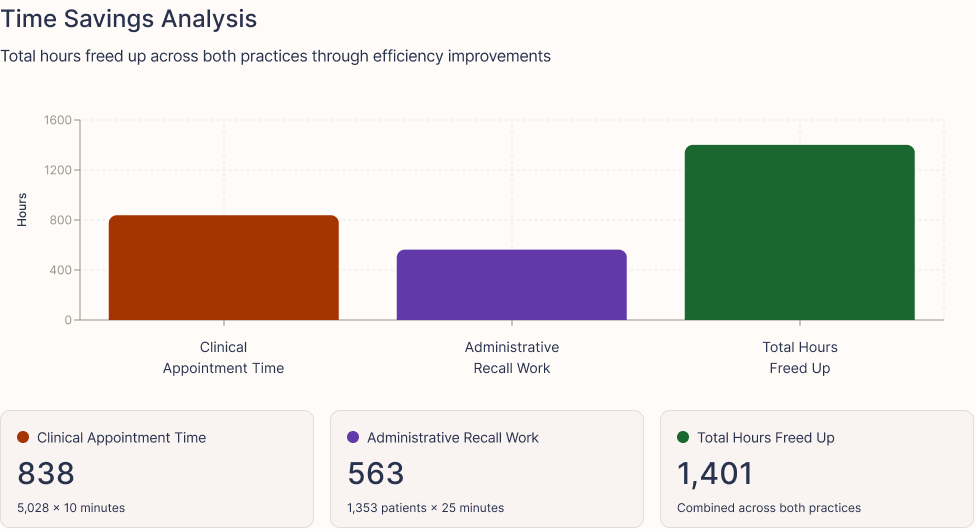
7.37 mmHg
average systolic blood pressure reduction
+10.2%
increase in QOF earnings
88.2%
engagement rate
Abbey Health PCN's partnership with Suvera demonstrates how holistic, technology-enabled care can transform long-term condition management. By addressing multiple conditions simultaneously through coordinated virtual care, the PCN achieved exceptional clinical outcomes, significant cost savings, and improved operational efficiency. The 88.2% patient engagement rate and substantial improvements across all quality indicators prove that patients respond positively to well-coordinated, accessible care.
This case study exemplifies how innovative healthcare delivery models can successfully manage the growing complexity of multimorbidity whilst providing sustainable, high-quality care that benefits patients, clinicians, and healthcare systems alike.
Abbey Health PCN serves a relatively affluent population in St Albans across two practices and has faced significant challenges in managing increasingly complex patients with multiple long-term conditions.
Abbey Health PCN was grappling with the growing challenge of multimorbidity management and ever-increasing local targets. Their patient population exhibited high rates of multiple long-term conditions, with complex care requirements that traditional approaches struggled to address effectively.

The PCN was caught in a reactive "end-of-year rush" cycle, chasing Enhanced Care Framework targets without a coordinated strategy. Their uncoordinated approach to long-term condition management resulted in poor control rates, administrative burden, and inefficient use of clinical capacity across both practices. Staff were overwhelmed by manual recalls and fragmented care delivery, whilst patients with multiple conditions often received disjointed care from different services.
Traditional approaches weren't working because they addressed conditions in isolation, creating inefficiencies and gaps in care. The PCN needed a fundamental shift towards holistic, patient-centred management.
Abbey Health PCN partnered with Suvera to implement a comprehensive, end-to-end strategy for long-term condition management. Suvera's Proactive Virtual Clinics provided:

Suvera implemented a robust segmentation strategy to ensure consistent patient recall and care delivery across both PCN practices:
Month of Birth Recall System: A standardised recall system prevented overwhelming surges in workload whilst promoting efficient resource allocation throughout the year.
Bespoke Workflows: Tailored pathways were developed for each practice, covering routine follow-ups to complex multimorbidity cases, ensuring optimal operation whilst maintaining PCN-wide standards.
Integrated Care Planning: All necessary investigations, including blood tests and foot checks, were coordinated according to each practice's specific requirements, ensuring high-quality, consistent care.


The transformation delivered substantial financial benefits, with significant savings achieved across the patient journey through Suvera’s identification, recalls, clinical appointments, GP supervision, and software solutions.
Managing 3,867 patients with multiple long term conditions through Suvera's intervention saved significant clinical and administrative time. Without Suvera's support, traditional engagement would have generated ~65% engagement, resulting in 5,028 additional appointments (from 2,514 engaged patients requiring 2 consultations each) and required intensive recall efforts for 1,353 non-engaged patients.


*£18 is a blended cost of mixed workforce delivering consultations (HCAs, Nurses, Pharmacists, GPs with costs of physical estates, where required).
**With costs for administration, running searches, generating lists, recalling patients and SMS messages, this would cost ~£20 per patient.
Both practices saw an improvement in QOF income for the conditions Suvera was supporting (HYP, CHOL, DM, AST, NDH), with one of the practices seeing a 24% increase in earnings.
Suvera's Virtual Clinic model and Planner technology freed clinical capacity for complex care and other priorities whilst maintaining clinical oversight. Practice teams experienced reduced administrative burden through automated systems, and seamless integration with existing workflows meant minimal disruption during implementation.
To find out how Suvera can support your practice or PCN with long term condition management, get in touch with our team at partnerships@suvera.co.uk